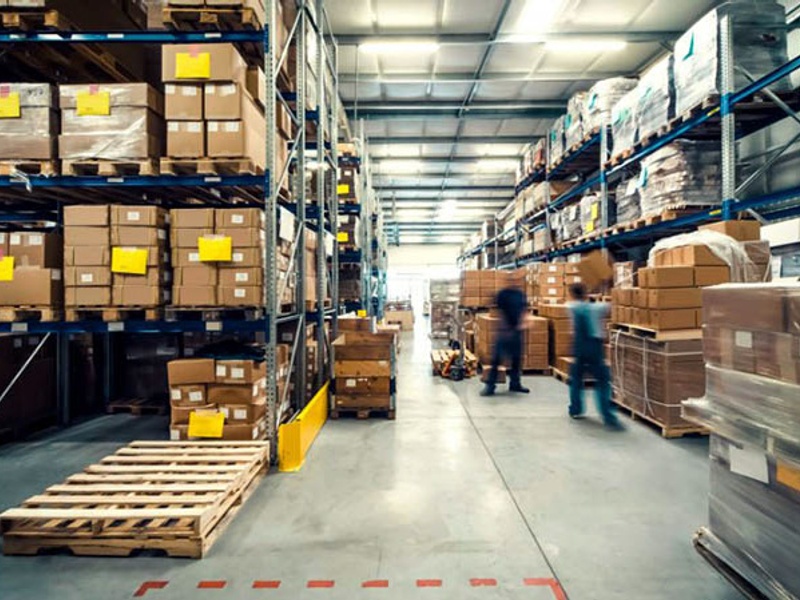What is a Gangmasters (GLAA) License?
What is a Gangmasters (GLAA) License?
Posted June 25, 2024
A Gangmasters and Labour Abuse Authority (GLAA) license is a legal requirement in the UK for businesses that supply workers to the agriculture, horticulture, and shellfish industries. The GLAA was established in 2004 to regulate these industries and protect vulnerable workers from exploitation. In this article, we will explore what a GLAA license is and why it is necessary.
What is a GLAA license?
A GLAA license is a legal requirement for businesses that supply workers to the agriculture, horticulture, and shellfish industries. The license is issued by the GLAA, which is government body responsible for regulating these industries and protecting workers from exploitation. The GLAA license is designed to ensure that businesses are operating legally and ethically, and that workers are treated fairly and with respect.
Why is a GLAA license necessary?
There are several reasons why a GLAA license is necessary. First and foremost, the license is designed to protect vulnerable workers from exploitation. The agriculture, horticulture, and shellfish industries are particularly susceptible to labour abuse, as they often rely on temporary and seasonal workers who may be unaware of their rights and vulnerable to exploitation. The GLAA license ensures that businesses operating in these industries are subject to rigorous checks and regulations, and that workers are treated fairly and with respect.
Secondly, a GLAA license is necessary to ensure that businesses are operating legally and ethically. The license requires businesses to comply with a range of legal and regulatory requirements, including health and safety, employment law, and immigration law. By ensuring that businesses are operating within the law, the GLAA license helps to maintain a level playing field for businesses operating in these industries.
Finally, a GLAA license is necessary to protect the reputation of the industries it regulates. The agriculture, horticulture, and shellfish industries are important sectors of the UK economy, and their reputation can be damaged by reports of labour abuse and exploitation. The GLAA license helps to ensure that businesses operating in these industries are reputable and ethical, and that they are committed to treating their workers fairly and with respect.
How do businesses obtain a GLAA license?
To obtain a GLAA license, businesses must undergo a rigorous application process. This process involves a range of checks and assessments, including criminal record checks, financial checks, and assessments of the business’s policies and procedures. The GLAA also conducts site visits to ensure that businesses are operating in compliance with the relevant regulations.
Once a business has obtained a GLAA license, it is subject to ongoing monitoring and regulation. The GLAA conducts regular checks and assessments to ensure that businesses are continuing to operate in compliance with the relevant regulations, and that workers are being treated fairly and with respect.
In conclusion, a GLAA license is a legal requirement for businesses that supply workers to the agriculture, horticulture, and shellfish industries in the UK. The license is necessary to protect vulnerable workers from exploitation, ensure that businesses are operating legally and ethically, and protect the reputation of these important industries. Businesses that obtain a GLAA license are subject to rigorous checks and assessments, and are committed to treating their workers fairly and with respect. Recruitment agencies like Jackson Hogg who work within the food industries must obtain this license to supply candidates to these companies in order to remain compliant with the law and to prevent worker exploitation in vulnerable sectors.
Share this Blog
Centred around care, trust and respect
Shifting the Landscape for the Future of...
The bioprocessing industry is evolving and the space is shifting towards greener, smarter and more efficient technologies. Read Lexie's latest blog to learn why companies like MAGic Bioprocessing and Akadeum Life Sciences are transforming outdated downstream methods with innovative magnetic and microbubble solutions that cut waste, energy use, and complexity.

Lexie Farrar
Lexie primarily focuses on Precision Medicine, OMICS and CGT tools within the US and Europe. Lexie joined Jackson Hogg at the beginning of May 2024...

How to Prepare for a Video Interview ...
Read our blog to learn everything you need to know to prepare for a video interview.

Beth McParlin
Beth joined Jackson Hogg in February 2024 as a part-time Associate Consultant. She initially joined Jackson Hogg alongside her Fashion Marketing...

The Future of Hiring ...
The future of hiring is determined by the rapid rate of advancing technology and ongoing demands for flexible and hybrid working opportunities. See our insight into exactly how these elements help to predict the future of hiring.

Beth McParlin
Beth joined Jackson Hogg in February 2024 as a part-time Associate Consultant. She initially joined Jackson Hogg alongside her Fashion Marketing...


